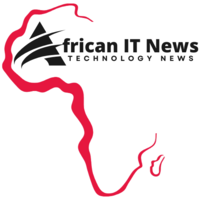Table of Contents
Rural connectivity in Nigeria: The International Telecoms Union (ITU), the world authority in charge of telecommunications, has stated that it is collaborating with the Nigerian Ministry of Communications and Digital Economy to make sure that the country’s rural populations have access to the internet.
Statistics of rural connectivity in Nigeria
Only 50% of rural communities in Africa are linked, according to Doreen Bogdan-Martin, the newly elected Secretary-General of the Union, who revealed this over the weekend. As a result, there is a need to collaborate with the governments to close the connectivity gap.
She emphasized that the collaboration with the Nigerian government will guarantee that more rural women have access to the internet. She believed that the availability of the internet would boost the productivity of rural women.
What they are saying about rural connectivity in Nigeria
Speaking at a gathering held by Women in Technology in Nigeria (WITIN) to commemorate International Women’s Day in 2022, Bogdan-Martin noted that rural African women play essential roles in food production and that they require internet access to increase their productivity.
“To link Nigerian rural women, we are collaborating with the Ministry of Communications and Digital Economy in Nigeria. Every rural area in Nigeria needs to be connected, especially for rural women who produce most of the food we consume.
Bogdan Martin
“We have found that although rural women produce 70% of Africa’s food, just 34% of them utilize the internet. These women require connections. In order to close the connectivity gap in rural areas, we are working with Nigeria in this area. She said that technology can assist farmers in monitoring crops, forecasting the weather, and battling agricultural pests.
Prof. Umar Danbatta, executive vice chairman (EVC) of the Nigerian Communications Commission (NCC), also spoke at the occasion and advised farmers and rural women to use technology to increase food production. The EVC stated that contemporary agriculture technology boosts employment, production efficiency, and time and cost savings:
Today, the telecommunications sector is vital to the diversification of the economy through advancing the knowledge economy and leveraging information and communication technologies (ICTs) as its enabler. In fields like health, education, agriculture, finance, transportation, trade, and governance, technology has improved human capacities.
What you must understand
- The United Nations specialized agency for information and communication technologies is called the International Telecommunication Union (ITU) (ICTs).
- The ITU, which was established in 1865 to facilitate global connectivity in communications networks, allots radio spectrum and satellite orbits, creates the technical standards that guarantee networks and technologies work together without interruption, and works to increase access to ICTs for underserved communities around the world.
- In September of this year, Doreen Bogdan-Martin, a director of the ITU Telecommunication Development Bureau (BDT) since 2019, won the election to become the union’s first female secretary-general.
FAQs about the International Telecommunication Union
What function does the International Telecommunication Union serve?
The International Telecommunication Union (ITU) is a UN entity with the responsibility of coordinating global telecommunications activities and services. The ITU is the oldest still-existing international organization. It was first established in 1865 as the International Telegraph Union.
What makes the International Telecommunication Union significant?
Establishing the criteria for the networks of the future
The International Telecommunication Union is the leading organization responsible for developing international standards for radiocommunication systems, network connectivity, data transmission, online security, broadcasting systems, and multimedia systems including streaming audio and video.
Why did the ITU get started?
The International Communications Union, a special UN institution, was established to promote global collaboration in all aspects of telecommunication.
What rules does the International Telecommunication Union follow?
The Terabit-capable Optical Transport Network and cutting-edge broadband access technologies like 40-Gigabit-capable Fibre to the Home (NG-PON2) and G are both defined by ITU specifications. rapid, exceeding 2 Gigabits per second (Gbits/s) for broadband access over regular telephone cables.
What are the three ITU sectors?
The ITU primarily addresses issues that are practical and technical in three main areas: (1) allocating radio frequencies and managing satellite orbit and access technologies (ITU-R); (2) creating technical telecommunication standards (ITU-T); and (3) assisting with development initiatives to increase global access to ICT.
Does the International Telecommunication Union belong to the UN?
The United Nations’ specialized agency for information and communication technologies (ICTs), the International Telecommunication Union, works with 193 Member States and a membership of more than 900 businesses, academic institutions, and international and regional organizations to advance ICT innovation.
Where is the International Telecommunication Union headquartered?
Geneva.
The ITU’s headquarters are conveniently situated in Geneva’s United Nations neighbourhood, facing the Place des Nations.
When did the International Telecommunication Union get its start?
May 17, 1865
The International Telegraph Union was established in Paris in 1865 before becoming International Telecommunication Union. It adopted its current name in 1932, and in 1947 it was designated as a specialized agency of the UN.
How many people are International Telecommunication Union members?
The International Telecommunication Union brings together more than 700 sector members and associates from business, international and regional organizations, as well as more than 150 from academia, in addition to its 193 member states.
Which of the International Telecommunication Union’s top policymaking bodies?
The Plenipotentiary Conference and the Administrative Council are in charge of running the International Telecommunication Union. The Plenipotentiary Conference is the Union’s top organ and the body that makes decisions about the Union’s policies and activities.




1 comment
Hi there, nice one.